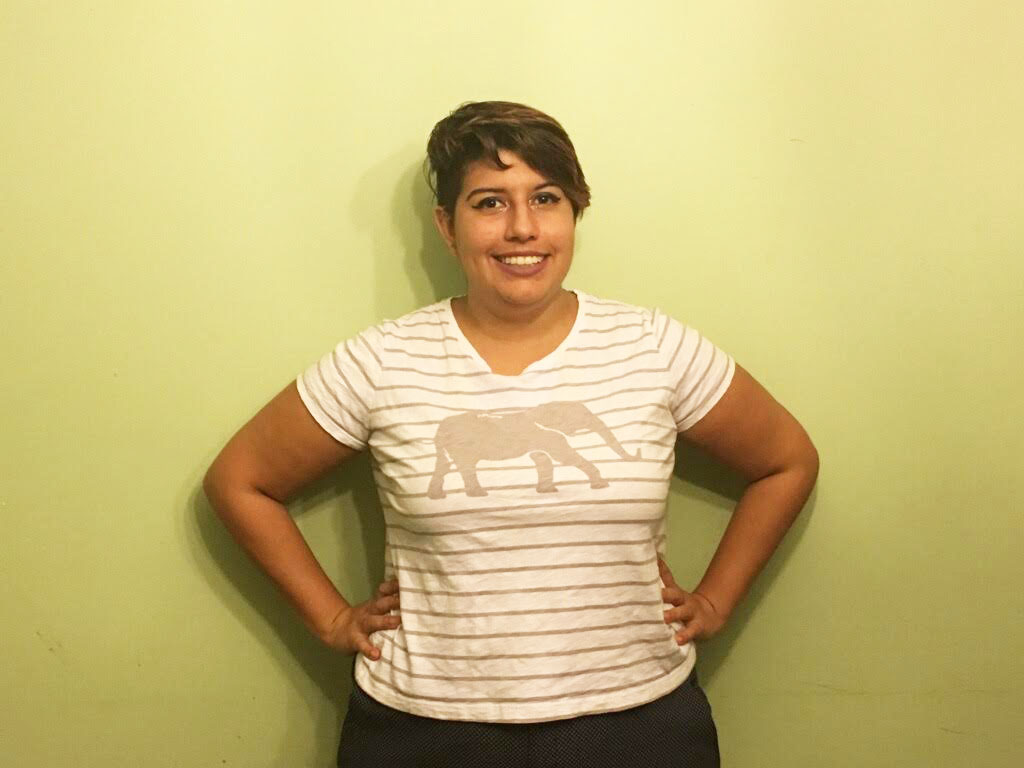When Tat Caicedo was asked to give a presentation on who they were in front of their English class last fall, the senior early childhood and special education major mentioned their pronouns in the very first sentence.
There’s “a majority of white cisgender women” in their classes, they said. “And I’m none of that. I’m a trans person who’s Latinx, but people read me as a woman, and that bothers me.”
Caicedo is not alone in their experience. Although the University of Maryland was recently ranked one of the most LGBT-friendly schools in the nation, according to an Aug. 29 Diamondback article, some transgender students feel that this university has a long way to go.
One of Caicedo’s classes, for example, is commonly greeted as if there are all females in the room — with comments such as, “Hey, ladies.”
“Immediately when they say that, I’m completely turned off from the conversation, and unfortunately I can’t learn,” they said.
Balakumar Balachandran, mechanical engineering chairman, said he was disappointed when he learned that students in this situation are internalizing their concerns rather than coming forward.
“This is obviously something that is a shame,” Balachandran said. “This should not happen. We wish [they] had approached us and spoken with us about it so we would know how to address that situation.”
Each semester, Caicedo sends their professors emails explaining that their legal name on the roster is not what they go by, and that they use they/them pronouns. This has been met with mixed responses, they said.
“Some teachers are like, ‘OK, thank you for telling me,’ and they’ll use the right name. They’ll call me Tat, but they’ll use the wrong pronouns for the whole semester,” Caicedo said. “It’s like, ‘Why did I put [in] that effort?'”
Senior Max Balagtas-Badoy regularly advocates for himself in the classroom.
“I’m not afraid to go up to a teacher and bring up my concerns about something that might have happened in the class that might have made queer people feel excluded or invalidated or unsafe,” Balagtas-Badoy said.
In Balagtas-Badoy’s psychology class, a professor spoke about transgender people “as if they were too insignificant or too much of an outlier to really consider,” and that the difference between sex and gender is basically negligible, he said.
“Whenever there are concerns that a student has about how they may have been treated in the class … I would encourage them to raise that issue directly with the professor if they feel comfortable doing that,” said Jack Blanchard, psychology department chair. “If they don’t feel comfortable doing that, raising those issues with me.”
Blanchard emphasized that the department is committed to “creating a classroom environment that’s supportive to students of all races, genders, sexual orientation.”
Though Balagtas-Badoy currently majors in philosophy and psychology, he used to be on the pre-med track, where he said a lot of transphobia takes the form of biological essentialism. This is the belief that “your genitals and your sex determine your entire identity, and anything else isn’t really valid,” he said.
Balagtas-Badoy credits his ability to advocate for himself to being transmasculine, or being assigned female at birth but identifying as male, rather than transfeminine.
“Society’s transphobia toward transfeminine people is much more violent than it is toward transmasculine people,” Balagtas-Badoy said. He also indicated that as an Asian-American, he isn’t discriminated against as much.
Junior English major Averi Ager hasn’t experienced direct discrimination; most of what they face in the classroom are transphobic jokes or incorrect pronoun usage. They said the worst thing they’ve experienced are microaggressions rather than direct transphobia.
While there are programs available for transgender students each year, such as the Quelcome: LGBTQ+Welcome Fest, Balagtas-Badoy said the main problem is that LGBT resources don’t radiate out to the students who aren’t affected by homophobia and transphobia.
He stressed that diversity programming only works when everyone is “much more invested in learning.”
Ager said although small discussion groups that discuss LGBT topics are a good resource in theory, they’re not always facilitated well.
Such small groups are student-run and not an initiative by the LGBT Equity Center, even though they’re often hosted there, Luke Jensen, director of the center, said.
“We’re painfully aware that our trans students have a tough time on-campus in many places,” Jensen said. “With our extremely limited resources, we’re doing everything that we can but it’s clearly insufficient.”



